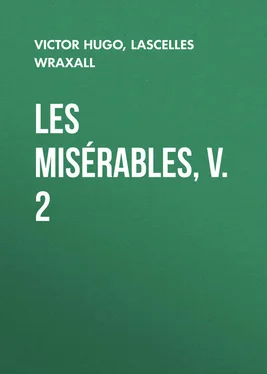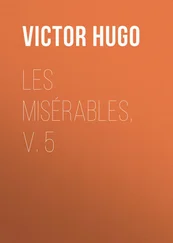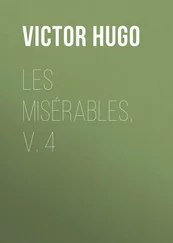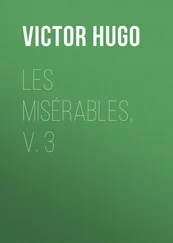Lascelles Wraxall - Les Misérables, v. 2
Здесь есть возможность читать онлайн «Lascelles Wraxall - Les Misérables, v. 2» — ознакомительный отрывок электронной книги совершенно бесплатно, а после прочтения отрывка купить полную версию. В некоторых случаях можно слушать аудио, скачать через торрент в формате fb2 и присутствует краткое содержание. Жанр: literature_19, foreign_antique, foreign_prose, на английском языке. Описание произведения, (предисловие) а так же отзывы посетителей доступны на портале библиотеки ЛибКат.
- Название:Les Misérables, v. 2
- Автор:
- Жанр:
- Год:неизвестен
- ISBN:нет данных
- Рейтинг книги:5 / 5. Голосов: 1
-
Избранное:Добавить в избранное
- Отзывы:
-
Ваша оценка:
- 100
- 1
- 2
- 3
- 4
- 5
Les Misérables, v. 2: краткое содержание, описание и аннотация
Предлагаем к чтению аннотацию, описание, краткое содержание или предисловие (зависит от того, что написал сам автор книги «Les Misérables, v. 2»). Если вы не нашли необходимую информацию о книге — напишите в комментариях, мы постараемся отыскать её.
Les Misérables, v. 2 — читать онлайн ознакомительный отрывок
Ниже представлен текст книги, разбитый по страницам. Система сохранения места последней прочитанной страницы, позволяет с удобством читать онлайн бесплатно книгу «Les Misérables, v. 2», без необходимости каждый раз заново искать на чём Вы остановились. Поставьте закладку, и сможете в любой момент перейти на страницу, на которой закончили чтение.
Интервал:
Закладка:
Bauduin killed; Foy wounded; arson, massacre, carnage, a stream composed of English, French, and German blood furiously mingled; a well filled with corpses; the Nassau regiment and the Brunswick regiment destroyed; Duplat killed; Blackman killed; the English Guards mutilated; twenty French battalions of the forty composing Reille's corps decimated; three thousand men in this château of Hougomont alone, sabred, gashed, butchered, shot, and burnt, – all this that a peasant may say to a traveller at the present day, "If you like to give me three francs, sir, I will tell you all about the battle of Waterloo."
CHAPTER III
JUNE 18, 1815
Let us go back, for that is one of the privileges of the narrator, and place ourselves once again in the year 1815, a little prior to the period when the matters related in the first part of this book begin. If it had not rained on the night between the 17th and 18th June, 1815, the future of Europe would have been changed; a few drops of rain more or less made Napoleon oscillate. In order to make Waterloo the end of Austerlitz, Providence only required a little rain, and a cloud crossing the sky at a season when rain was not expected was sufficient to overthrow an empire. The battle of Waterloo could not begin till half-past eleven, and that gave Blücher time to come up. Why? Because the ground was moist and it was necessary for it to become firmer, that the artillery might manœuvre. Napoleon was an artillery officer, and always showed himself one; all his battle plans are made for projectiles. Making artillery converge on a given point was his key to victory. He treated the strategy of the opposing general as a citadel, and breached it; he crushed the weak point under grape-shot, and he began and ended his battles with artillery. Driving in squares, pulverizing regiments, breaking lines, destroying and dispersing masses, – all this must be done by striking, striking, striking incessantly, and he confided the task to artillery. It was a formidable method, and, allied to genius, rendered this gloomy pugilist of war invincible for fifteen years.
On June 18, 1815, he counted the more on his artillery, because he held the numerical superiority. Wellington had only one hundred and fifty-nine guns, while Napoleon had two hundred and forty. Had the earth been dry and the artillery able to move, the action would have begun at six A.M. It would have been won and over by two P.M., three hours before the Prussians changed the fortune of the day. How much blame was there on Napoleon's side for the loss of this battle? Is the shipwreck imputable to the pilot? Was the evident physical decline of Napoleon at that period complicated by a certain internal diminution? Had twenty years of war worn out the blade as well as the scabbard, the soul as well as the body? Was the veteran being awkwardly displayed in the captain? In a word, was the genius, as many historians of reputation have believed, eclipsed? Was he becoming frenzied, in order to conceal his own weakening from himself? Was he beginning to oscillate and veer with the wind? Was he becoming unconscious of danger, which is a serious thing in a general? In that class of great material men who may be called the giants of action, is there an age when genius becomes short-sighted? Old age has no power over ideal genius; with the Dantes and the Michael Angelos old age is growth, but is it declension for the Hannibals and the Buonapartes? Had Napoleon lost the direct sense of victory? Had he reached a point where he no longer saw the reef, guessed the snare, and could not discern the crumbling edge of the abyss? Could he not scent catastrophes? Had the man who formerly knew all the roads to victory, and pointed to them with a sovereign finger, from his flashing car, now a mania for leading his tumultuous team of legions to the precipices? Was he attacked at the age of forty-six by a supreme madness? Was the Titanic charioteer of destiny now only a Phaëton?
We do not believe it.
His plan of action, it is allowed by all, was a masterpiece. Go straight at the centre of the allied line, make a hole through the enemy, cut him in two, drive the British half over Halle, and the Prussians over Tingres, carry Mont St. Jean, seize Brussels, drive the German into the Rhine and the Englishman into the sea. All this was contained for Napoleon in this battle; afterwards he would see.
We need hardly say that we do not pretend to tell the story of Waterloo here; one of the generating scenes of the drama we are recounting is connected with this battle; but the story of Waterloo has been already told, and magisterially discussed, from one point of view by Napoleon, from another by a galaxy of historians. For our part, we leave the historians to contend; we are only a distant witness, a passer-by along the plain, a seeker bending over the earth made of human flesh, and perhaps taking appearances for realities; we possess neither the military practice nor the strategic competency that authorizes a system; in our opinion, a chain of accidents governed both captains at Waterloo; and when destiny, that mysterious accused, enters on the scene, we judge like the people, that artless judge.
CHAPTER IV
A
Those who wish to form a distinct idea of the battle of Waterloo, need only imagine a capital A laid on the ground. The left leg of the A is the Nivelles road, the right one the Genappe road, while the string of the A is the broken way running from Ohain to Braine l'Alleud. The top of the A is Mont St. Jean, where Wellington is; the left lower point is Hougomont, where Reille is with Jérôme Bonaparte; the right lower point is La Belle Alliance, where Napoleon is. A little below the point where the string of the A meets and cuts the right leg, is La Haye Sainte; and in the centre of this string is the exact spot where the battle was concluded. It is here that the lion is placed, the involuntary symbol of the heroism of the old Guard.
The triangle comprised at the top of the A between the two legs and the string, is the plateau of Mont St. Jean; the dispute for this plateau was the whole battle. The wings of the two armies extend to the right and left of the Genappe and Nivelles roads, d'Erlon facing Picton, Reille facing Hill. Behind the point of the A, behind the plateau of St. Jean, is the forest of Soignies. As for the plan itself, imagine a vast undulating ground; each ascent commands the next ascent, and all the undulations ascend to Mont St. Jean, ending there in the forest.
Two hostile armies on a battle-field are two wrestlers. It is a body-grip. One tries to throw the other; they cling to everything; a thicket is a basis; an angle in the wall is a breastwork; for want of a village to support it, a regiment gives way; a fall in the plain, a transverse hedge in a good position, a wood, a ravine, may arrest the heel of that column which is called an army, and prevent it slipping. The one who leaves the field is beaten; and hence the necessity for the responsible chief to examine the smallest clump of trees, and investigate the slightest rise in the ground. The two generals had attentively studied the plain of Mont St. Jean, which is called at the present day the field of Waterloo. In the previous year, Wellington, with prescient sagacity, had examined it as suitable for a great battle. On this ground and for this duel of June 18, Wellington had the good side and Napoleon the bad; for the English army was above, the French army below.
It is almost superfluous to sketch here the appearance of Napoleon, mounted and with his telescope in his hand, as he appeared on the heights of Rossomme at the dawn of June 18. Before we show him, all the world has seen him. The calm profile under the little hat of the Brienne school, the green uniform, the white facings concealing the decorations, the great coat concealing the epaulettes, the red ribbon under the waistcoat, the leather breeches, the white horse with its housings of purple velvet, having in the corners crowned N's and eagles, the riding-boots drawn over silk stockings, the silver spurs, the sword of Marengo, – the whole appearance of the last of the Cæsars rises before every mind, applauded by some, and regarded sternly by others. This figure has for a long time stood out all light; this was owing to a certain legendary obscuration which most heroes evolve, and which always conceals the truth for a longer or shorter period, but at the present day we have history and light. That brilliancy called history is pitiless; it has this strange and divine thing about it, that, all light as it is, and because it is light, it often throws shadows over spots before luminous, it makes of the same man two different phantoms, and one attacks the other, and the darkness of the despot struggles with the lustre of the captain. Hence comes a truer proportion in the definitive appreciation of nations; Babylon violated, diminishes Alexander; Rome enchained, diminishes Cæsar; Jerusalem killed, diminishes Titus. Tyranny follows the tyrant, and it is a misfortune for a man to leave behind him a night which has his form.
Читать дальшеИнтервал:
Закладка:
Похожие книги на «Les Misérables, v. 2»
Представляем Вашему вниманию похожие книги на «Les Misérables, v. 2» списком для выбора. Мы отобрали схожую по названию и смыслу литературу в надежде предоставить читателям больше вариантов отыскать новые, интересные, ещё непрочитанные произведения.
Обсуждение, отзывы о книге «Les Misérables, v. 2» и просто собственные мнения читателей. Оставьте ваши комментарии, напишите, что Вы думаете о произведении, его смысле или главных героях. Укажите что конкретно понравилось, а что нет, и почему Вы так считаете.












